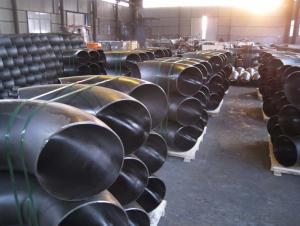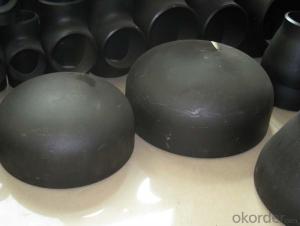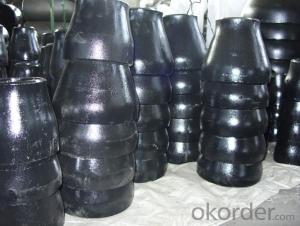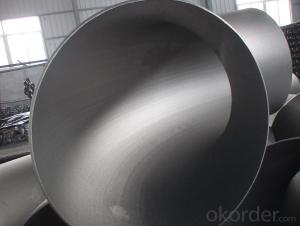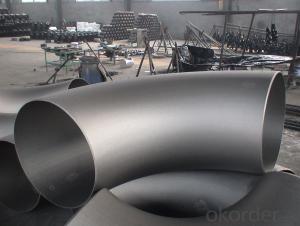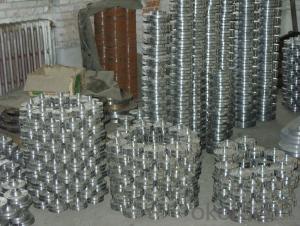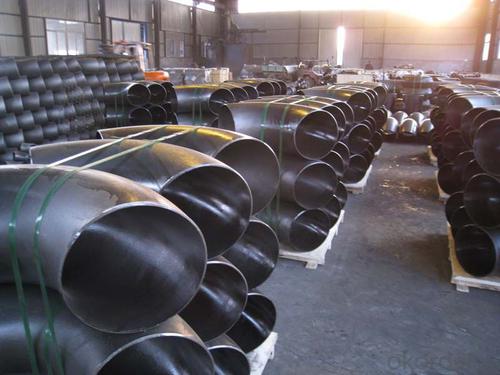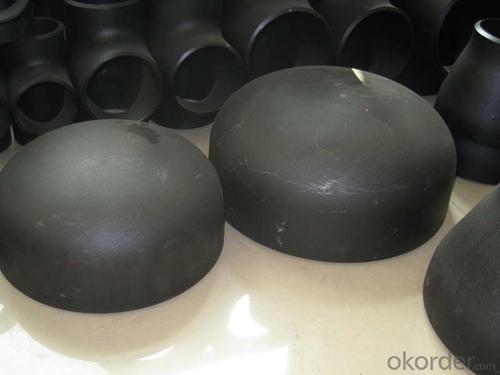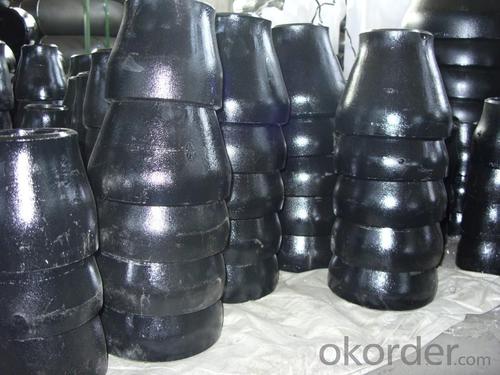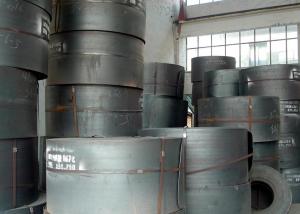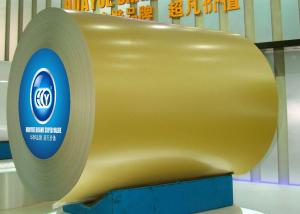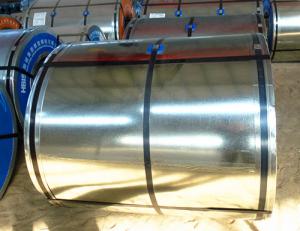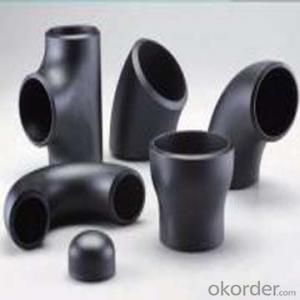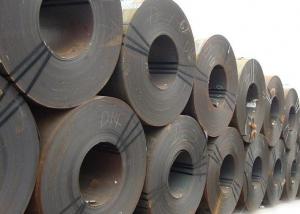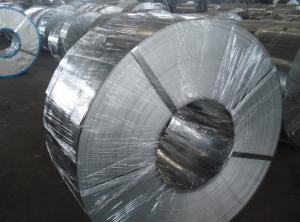Carbon Steel Pipe Fittings ASTM A234 BEND TEE FLANGE
- Loading Port:
- China Main Port
- Payment Terms:
- TT OR LC
- Min Order Qty:
- -
- Supply Capability:
- -
OKorder Service Pledge
OKorder Financial Service
You Might Also Like
Specifications
pipe fitting elbow
Certificate:ISO:9001-2000
New material,completely meet asme and din standard
Best price
1. type: AISI ASTM A234 WPB BW Con Elbow
2. Size: 1/2"-48"(1/2"-24"is seamless and 26"-48"is welded)
3. Wall thickness: sch10-160, STD, XS, XXS
4. Material: A234WPB, A420WPL6, A420WP5, WP11, WP12, WP22, etc
5. Welding line: seamless
6. Angle of bend: 30, 45, 90, 180degree
7. Bending radius: SR, LR
8. Standard: ANSI B16.9, JIS, SB, DIN, GB
9. Surface treatment: black paint, vanis paint, black rust-proof oil,
transparent oil, hot galvanizing
10. Application: petroleum, electricity, chemical, natural gas, metallurgy,construction,
shipbuilding and other fields because of its high pressure, high temperature, etc
11. connection: welding
12. technics:forged
13.Certificate:ISO9001 - 2000, CE, SGS, etc.
14. packaging: wooden case, pallet, container or in accordance with the
requirement of customers
15. Principle: quality fist, customer first, credit first
16. payment: L/C T/T
17. delivery time: 7-25 days after payments
18. Notes: the bevel can be made in accordance with the special requirements
of the customers
19. Others: we can also produce the products according to the requirements
of the customers
The main production:
1. PIPE FITTINGS: elbows, tees, bends, reducers, cap, flanges and sockets etc.
2. PIPE: bult welded pipes, seamless pipes, threaded pipes, etc.
We sincerely welcom customers at home and abroad to visit us and seek common development.
- Q: How are steel billets produced?
- Steel billets are produced through a process called continuous casting, where molten steel is poured into a water-cooled mold to form a solid rectangular shape. The billets are then cooled, cut to desired lengths, and prepared for further processing and shaping into various steel products.
- Q: What are the different types of steel forgings and their applications in the oil and gas industry?
- There are several types of steel forgings used in the oil and gas industry. Some common types include carbon steel forgings, stainless steel forgings, and alloy steel forgings. Carbon steel forgings are widely used due to their high strength and durability. They are commonly used in various applications such as valves, fittings, flanges, and pipelines. Stainless steel forgings are preferred for their corrosion resistance properties. They are commonly used in equipment and components that come in contact with corrosive substances, such as pumps, valves, and heat exchangers. Alloy steel forgings are known for their enhanced mechanical properties, including high strength, toughness, and resistance to wear and corrosion. They are commonly used in critical components such as drill bits, wellheads, and downhole tools. Overall, steel forgings play a crucial role in the oil and gas industry, providing reliable and efficient solutions for various applications, ensuring safe and efficient operations in this demanding sector.
- Q: How is steel wire galvanized for fencing applications?
- Steel wire is galvanized for fencing applications by immersing it in a bath of molten zinc. This process, known as hot-dip galvanizing, creates a protective coating on the wire. The wire is first cleaned to remove any impurities, then dipped into the zinc bath, ensuring complete coverage. The zinc coating prevents corrosion and extends the lifespan of the wire, making it suitable for fencing applications.
- Q: How are steel products used in the construction of airports and terminals?
- Steel products are extensively used in the construction of airports and terminals due to their strength, durability, and versatility. Steel is used for structural frameworks, such as beams and columns, providing the necessary support and stability for large-scale airport buildings and terminals. It is also used for roofing systems, hangars, and canopies, ensuring protection from the elements and creating functional spaces. Additionally, steel is commonly employed in the construction of runways, aprons, and taxiways, as it can withstand heavy loads and provide a smooth surface for aircraft operations. Overall, steel products play a crucial role in the construction of airports and terminals, contributing to their safety, efficiency, and long-lasting performance.
- Q: What are the different types of steel tanks and containers available?
- There are various types of steel tanks and containers available, including welded steel tanks, bolted steel tanks, stainless steel tanks, and corrugated steel containers. Each type has its own unique features and applications, ranging from water storage tanks to chemical storage containers and industrial bulk storage tanks.
- Q: What are the properties of hardened steel?
- Hardened steel possesses several properties, including increased strength and hardness, improved wear resistance, and higher durability. It is achieved by subjecting the steel to heat treatment processes like quenching and tempering, which alter its microstructure. As a result, hardened steel becomes tougher, more resistant to deformation, and less prone to scratching or breaking. Additionally, it exhibits better resistance to impact and can withstand higher temperatures, making it suitable for various applications such as tools, machinery parts, and construction materials.
- Q: What are the different types of steel tanks and their applications in the food processing industry?
- There are several types of steel tanks used in the food processing industry, including stainless steel tanks, carbon steel tanks, and food-grade epoxy-coated steel tanks. Stainless steel tanks are commonly used for storing and processing food products due to their corrosion resistance, easy cleaning, and durability. Carbon steel tanks are often used for bulk storage of ingredients and raw materials, as they are cost-effective and can handle high capacities. Food-grade epoxy-coated steel tanks are suitable for storing acidic or corrosive food products, as the coating provides an additional layer of protection. Overall, these different types of steel tanks serve various purposes in the food processing industry, ensuring the safe and efficient storage and processing of food products.
- Q: What are the different types of steel profiles and sections available?
- There are several different types of steel profiles and sections available, including H-beams, I-beams, U-channels, angles, and T-sections. These profiles and sections have different shapes and sizes, allowing them to be used for various structural and construction purposes.
- Q: What are the different types of steel fasteners and their uses in machinery?
- There are several types of steel fasteners used in machinery, including bolts, screws, nuts, washers, and rivets. Bolts are used to hold two or more objects together with the help of a nut and are commonly used in heavy machinery. Screws are similar to bolts but have a threaded shaft and are used to secure objects together without the need for a nut. Nuts are utilized to secure bolts and screws in place, providing a strong and secure connection. Washers are thin metal discs used under nuts or bolts to distribute the load and prevent damage to the surface. Lastly, rivets are permanent fasteners used to join two pieces of metal together by deforming the end of the rivet to create a strong connection. Each type of steel fastener has its own specific use in machinery, ensuring stability, strength, and reliability in various applications.
- Q: What are the applications of steel in the mining industry?
- Steel is widely used in the mining industry for various applications including mining equipment, infrastructure, and structural components. It is used in the construction of mining machinery such as drills, excavators, and trucks due to its high strength and durability. Steel is also used in the fabrication of mine shafts, storage tanks, and pipelines for transporting minerals. Additionally, steel is used in the construction of mine buildings, bridges, and other structures required for mining operations. Overall, steel plays a crucial role in the mining industry by providing robust and reliable materials for equipment and infrastructure.
Send your message to us
Carbon Steel Pipe Fittings ASTM A234 BEND TEE FLANGE
- Loading Port:
- China Main Port
- Payment Terms:
- TT OR LC
- Min Order Qty:
- -
- Supply Capability:
- -
OKorder Service Pledge
OKorder Financial Service
Similar products
Hot products
Hot Searches
Related keywords
